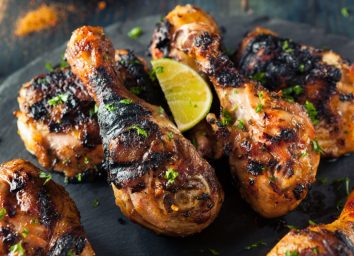4 Best Eating Habits for Pancreatic Cancer, Says Dietitian
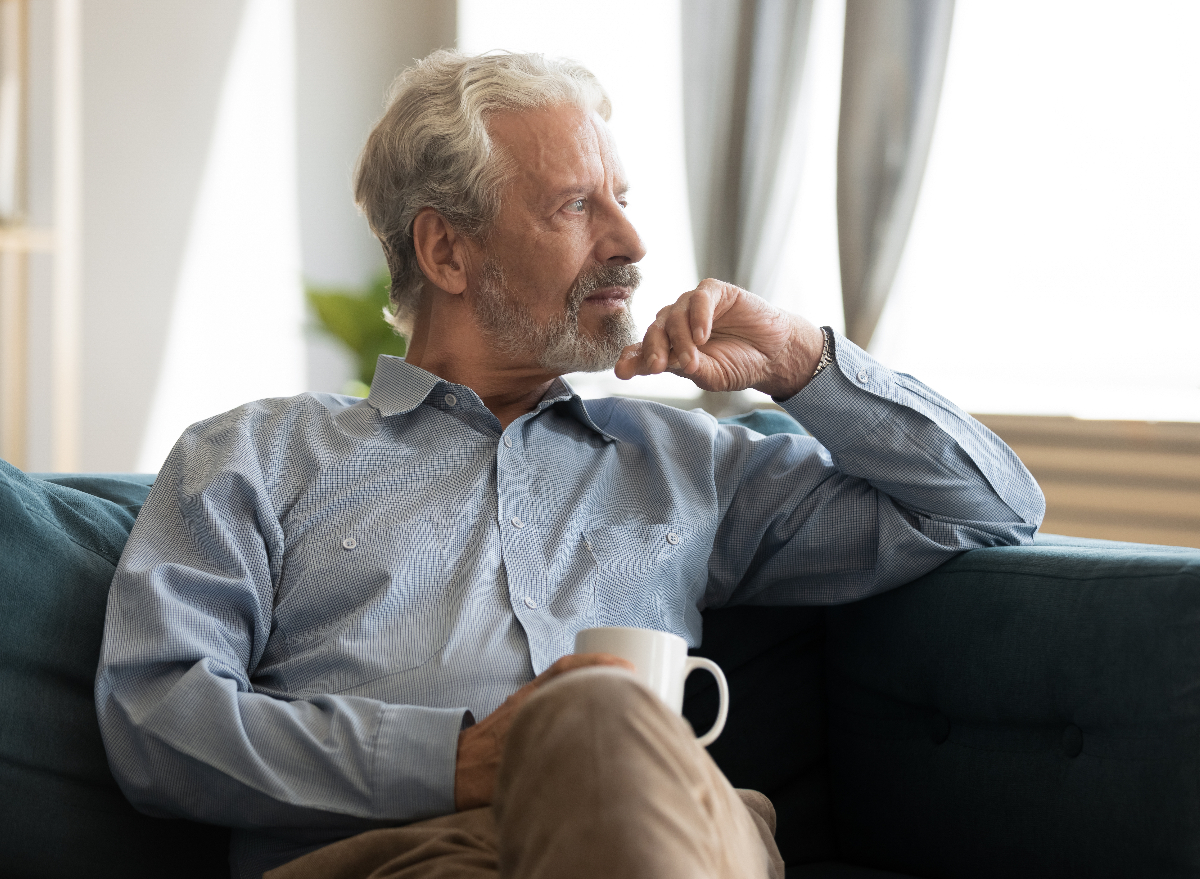
Pancreatic cancer is an extremely difficult disease to live with. It's painful and affects so many more parts of your body than just your pancreas. In 2022, there are an estimated 62,210 Americans that will be diagnosed with pancreatic cancer, and 49,830 people who will die from this disease.
While it is obviously important to work with your doctor and follow the recovery plans they have made for you, it may also be helpful to have some easy eating tips you can have on hand for bringing relief to your cancer symptoms.
We consulted an expert, Dana Ellis Hunnes, PhD, MPH, RD, an Assistant Professor with the Fielding School of Public Health at UCLA and Senior Dietitian at the Ronald Reagan UCLA Medical Center, to put together a list of eating habits that can bring relief to your daily life, and for more healthy eating tips check out 50 Worst Foods to Never Eat If Cancer Runs In Your Family.
Drink high-calorie shakes.
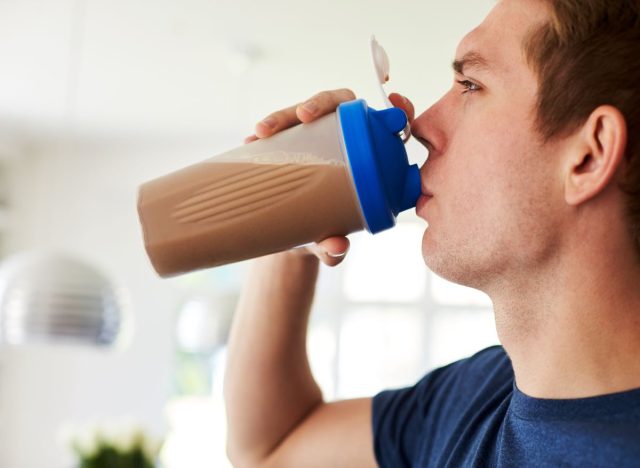
When you have pancreatic cancer, making your own shakes at home can help you get enough calories even when you don't have an appetite.
"We often recommend patients make shakes at home so they can get the healthiest ingredients in them, such as berries, plant-based unsweetened yogurt (cashew yogurt for example), a plant-based protein powder for more protein, a banana, and some plant-based milk or slight bit of juice to thin it out. This is a good thing for patients to drink because when they lose weight unintentionally, they need to take in more calories, and often their appetite is lower. It's easier to take in more calories by drinking calories than to eat them for many patients with pancreatic cancer," says Dr. Hunnes.
Eat minimally-processed foods.
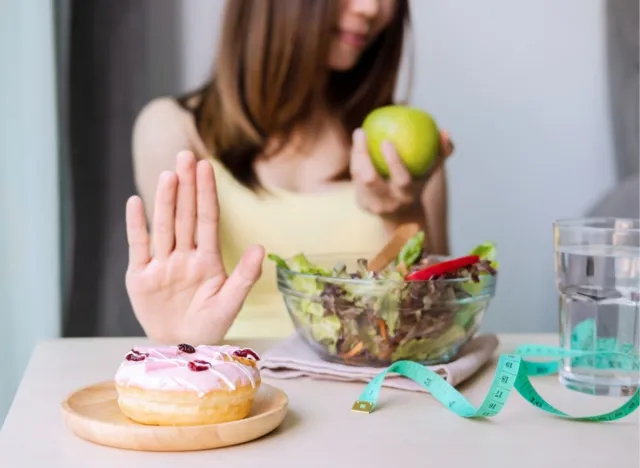
According to Dr. Hunnes, it's important to try eating as many whole foods as you can while limiting your consumption of processed foods.
"Often patients who have pancreatic cancer have more difficulty digesting or absorbing their food because their insulin secretion is affected by the pancreatic cancer. Oftentimes their pancreatic enzymes are also affected. So, if patients are eating foods that are too high in fat (fried foods) or too high in sugars (pastries, white breads, refined carbs), they will have a harder time digesting and absorbing those foods. Because of this, a less-processed diet filled with more whole foods is often better digested and absorbed than those that are highly processed," says Dr. Hunnes.
Consume less fat.
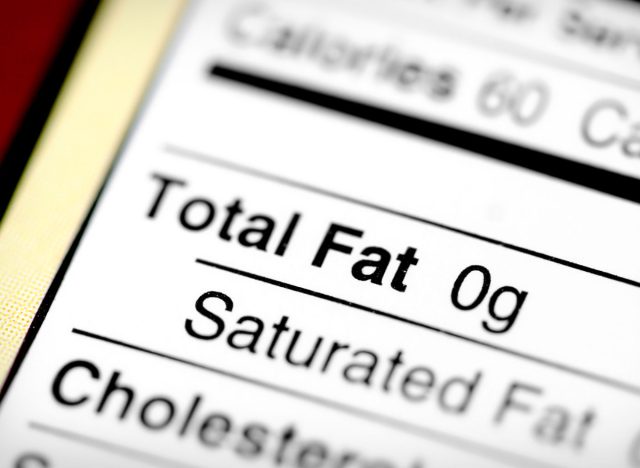
Specifically lowering your fat intake can help you manage your symptoms of pancreatic cancer.
"Diarrhea and floating stools can also be a pretty common side effect or symptom of pancreatic cancer. That's because we do not digest and absorb fats very well. If you see this as one of your side effects, it is recommended to eat a lower-fat diet, and talk to your doctor about getting onto pancreatic enzymes. One of the reasons patients lose weight is because they're not absorbing their calories very well. In terms of limiting fat intake, generally speaking we recommend avoiding fried foods, foods that are just swimming in oil, and instead recommend healthy sources of fats such as avocado in small portions, and nuts and seeds," says Dr. Hunnes.
Get enough calories during the day.
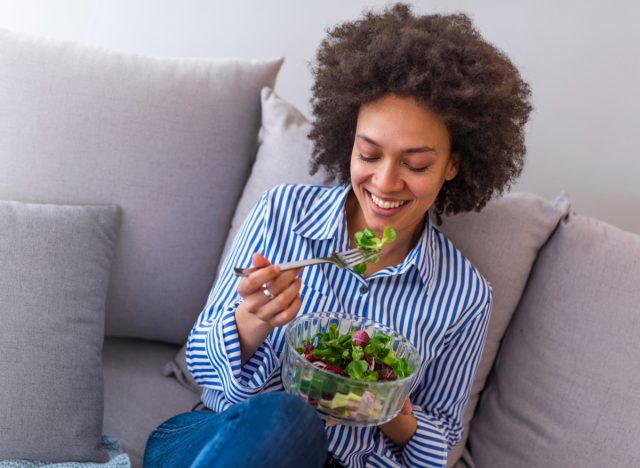
Lastly, focusing on getting enough calories every day can help your overall health if you're living with pancreatic cancer.
"But one of the most important things to do with pancreatic cancer is to ensure you're getting enough calories in a day, which can often be a challenge if you are experiencing cramping or pain from the pancreas itself. Because the appetite can dampen, it's important to eat high-calorie foods," says Dr. Hunnes.

